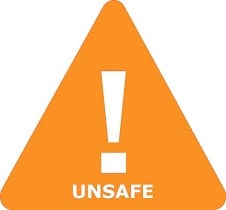Is HSDB 7359 Safe in Breastfeeding
Question
I am a breastfeeding mother and i want to know if it is safe to use HSDB 7359? Is HSDB 7359 safe for nursing mother and child? Does HSDB 7359 extracts into breast milk? Does HSDB 7359 has any long term or short term side effects on infants? Can HSDB 7359 influence milk supply or can HSDB 7359 decrease milk supply in lactating mothers?
HSDB 7359 lactation summary

- DrLact safety Score for HSDB 7359 is 5 out of 8 which is considered Unsafe as per our analyses.
- A safety Score of 5 indicates that usage of HSDB 7359 may cause serious side effects in breastfed baby.
- Our study of different scientific research indicates that HSDB 7359 may cause moderate to high side effects or may affect milk supply in lactating mother.
- Our suggestion is to use safer alternate options rather than using HSDB 7359 .
- It is recommended to evaluate the advantage of not breastfeeding while using HSDB 7359 Vs not using HSDB 7359 And continue breastfeeding.
- While using HSDB 7359 Its must to monitor child for possible reactions. It is also important to understand that side effects vary largely based on age of breastfed child and time of medication in addition to dosage.
- Score calculated using the DrLact safety Version 1.2 model, this score ranges from 0 to 8 and measures overall safety of drug in lactation. Scores are primarily calculated using publicly available case studies, research papers, other scientific journals and publically available data.
Answer by Dr. Ru: About HSDB 7359 usage in lactation
Check-up for development of gastroenteritis.Be aware of the possibility of false negative results of bacterial cultures when the mother is on antibiotics.It has been reported worsening on some patients affected with myasthenia gravis and several cases of hepatic failure have occurred.
Answer by DrLact: About HSDB 7359 usage in lactation
If HSDB 7359 is required by the mother, it is not a reason to discontinue breastfeeding. Monitor the infant for possible effects on the gastrointestinal tract, such as diarrhea, vomiting, and candidiasis (e.g., thrush, diaper rash). However, because there is no published experience with HSDB 7359 during breastfeeding, an alternate drug may be preferred, especially while nursing a newborn or preterm infant.
Alternate Drugs
Linezolid(Low Risk)
Paromomycin(Safe)
Clarithromycin(Safe)
Azithromycin(Safe)
Roxithromycin(Safe)
Telithromycin(Unsafe)
Cloxacillin(Safe)
Salicylic Acid(Safe)
Penciclovir(Safe)
Floxacillin(Safe)
Ritonavir(Unsafe)
Moxifloxacin(Low Risk)
Secnidazole(Safe)
Butoconazole(Safe)
Cefepime(Safe)
Primaquine(Low Risk)
Ticarcillin(Safe)
Abacavir(Safe)
Ciprofloxacin(Safe)
Malathion(Low Risk)
Famciclovir(Low Risk)
Teicoplanin(Safe)
Albendazole(Safe)
Atovaquone(Low Risk)
Oseltamivir(Safe)
Cephradine(Safe)
Erythromycin(Low Risk)
Nevirapine(Low Risk)
Methicillin(Low Risk)
Fusidic Acid(Safe)
Ivermectin(Safe)
Cefdinir(Safe)
Tetracycline(Safe)
Chloramphenicol(Unsafe)
Cephalexin(Safe)
Clindamycin(Low Risk)
Nelfinavir(Unsafe)
Meropenem(Safe)
Lindane(Unsafe)
Cefazolin(Safe)
Linezolid(Low Risk)
Streptomycin(Safe)
Cefuroxime(Safe)
Clarithromycin(Safe)
Loracarbef(Safe)
Paromomycin(Safe)
Permethrin(Safe)
Cefadroxil(Safe)
Ceftriaxone(Safe)
Nitazoxanide(Safe)
Lomefloxacin(Low Risk)
Praziquantel(Safe)
Cefaclor(Safe)
Procaine Penicillin G(Safe)
Azithromycin(Safe)
Lamivudine(Safe)
Levofloxacin(Low Risk)
Mebendazole(Safe)
Dapsone(Low Risk)
Piperacillin(Safe)
Econazole(Safe)
Ceftibuten(Safe)
Rifaximin(Safe)
Indinavir(Unsafe)
Kanamycin(Safe)
Colistimethate(Safe)
Capreomycin(Low Risk)
Acyclovir(Safe)
Tinidazole(Safe)
Bacampicillin(Safe)
Ertapenem(Safe)
Penicillin V(Safe)
Roxithromycin(Safe)
Ceftazidime(Safe)
Quinine(Safe)
Sulfasalazine(Safe)
Aztreonam(Safe)
Zidovudine(Low Risk)
Penicillin G(Safe)
Tioconazole(Safe)
Cefprozil(Safe)
Pyrimethamine(Safe)
Gentamicin(Safe)
Metronidazole(Safe)
Ampicillin(Safe)
Oxytetracycline(Safe)
Terconazole(Safe)
Mefloquine(Safe)
Emtricitabine(Safe)
Gatifloxacin(Low Risk)
Amantadine(Low Risk)
Tenofovir(Safe)
Sulconazole(Safe)
Cefoxitin(Safe)
Hydroxychloroquine(Safe)
Efavirenz(Unsafe)
Enoxacin(Low Risk)
Amoxicillin(Safe)
Ofloxacin(Safe)
Polymyxin B(Safe)
Cefotetan(Safe)
Didanosine(Unsafe)
Doxycycline(Low Risk)
Telithromycin(Unsafe)
Sulfisoxazole(Safe)
Sulfamethoxazole(Safe)
Norfloxacin(Safe)
Valganciclovir(Low Risk)
Oxiconazole(Safe)
Cefotaxime(Safe)
Chloroquine(Safe)
Dicloxacillin(Safe)
Vancomycin(Safe)
Amikacin(Safe)
Saquinavir(Unsafe)
Neomycin(Safe)
Ganciclovir(Low Risk)
Naftifine(Safe)
Trovafloxacin(Unsafe)
Demeclocycline(Low Risk)
Nafcillin(Safe)
Ciclopirox(Safe)
Cefixime(Safe)
Tobramycin(Safe)
Telithromycin(Unsafe)
